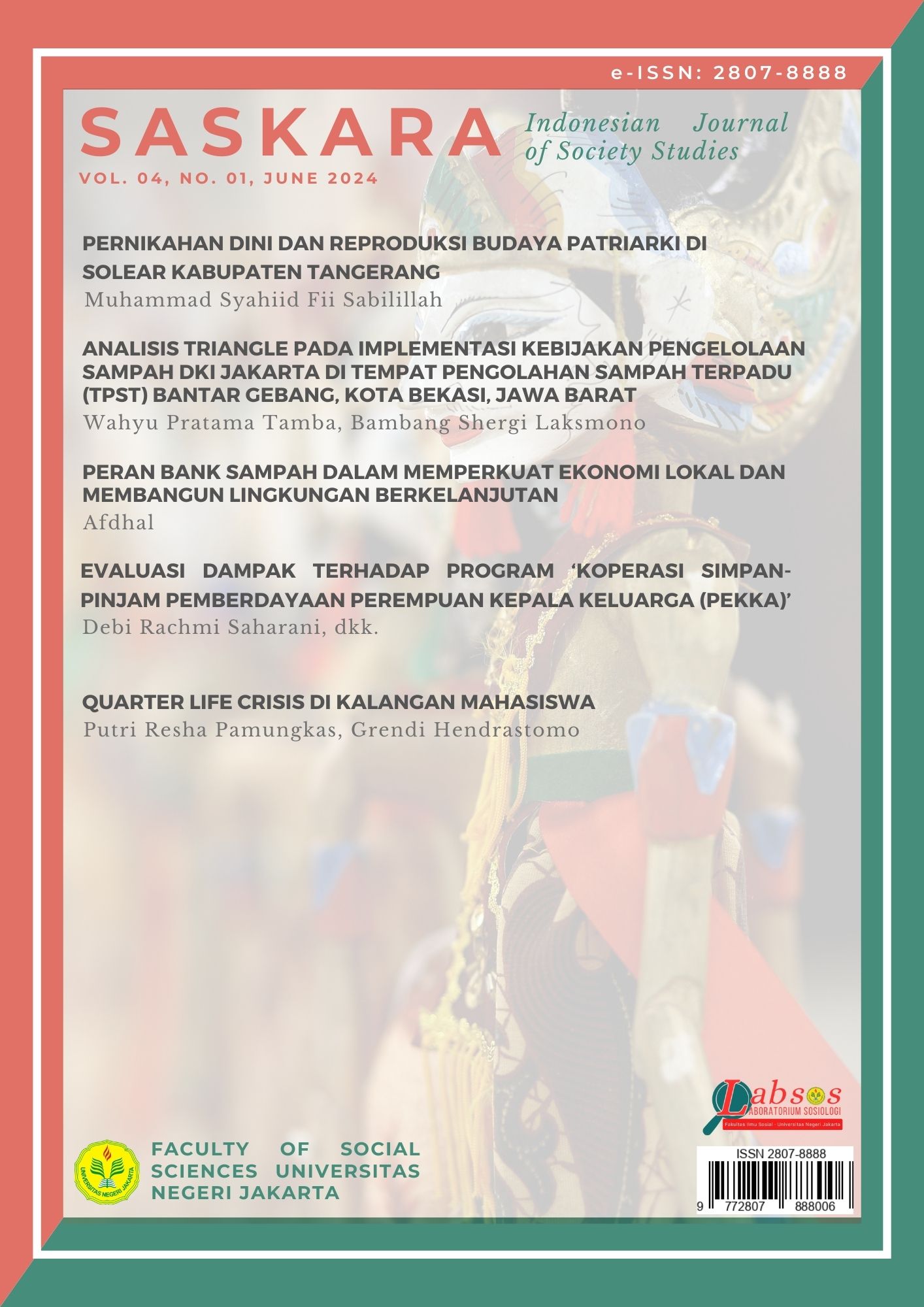Peran Bank Sampah dalam Memperkuat Ekonomi Lokal dan Membangun Lingkungan Berkelanjutan
DOI:
https://doi.org/10.21009/Saskara.041.03Keywords:
Waste Banks, Waste Management, Innovative Model, Sustainable EnvironmentAbstract
Waste Banks, as an innovation in sustainable waste management, are rooted in the principles of social engineering that encourage communities to actively segregate and manage their waste. Amidst this dynamic, this research focuses on the Waste Bank of the Environmental Care Group 'Serasi' in Nania Village, Ambon City. This approach delves deeper into various aspects that support the sustainability of waste banks, including operational technicalities, institutional structures, the prevailing legal framework, the financing models applied, and community interaction and participation. By adopting a mixed-methods approach, this study combines field observation techniques, in-depth interviews with stakeholders, and the distribution of questionnaires to the public. Findings from the analysis affirm that, despite facing some technical challenges, the Waste Bank management has effectively executed its functions. Furthermore, the existence of this Waste Bank has generated tangible positive impacts in the social, economic, and environmental dimensions, providing strong evidence of the potential and relevance of waste banks as innovative solutions to contemporary waste management challenges.



6.png)
.png)
1.png)
.png
)










